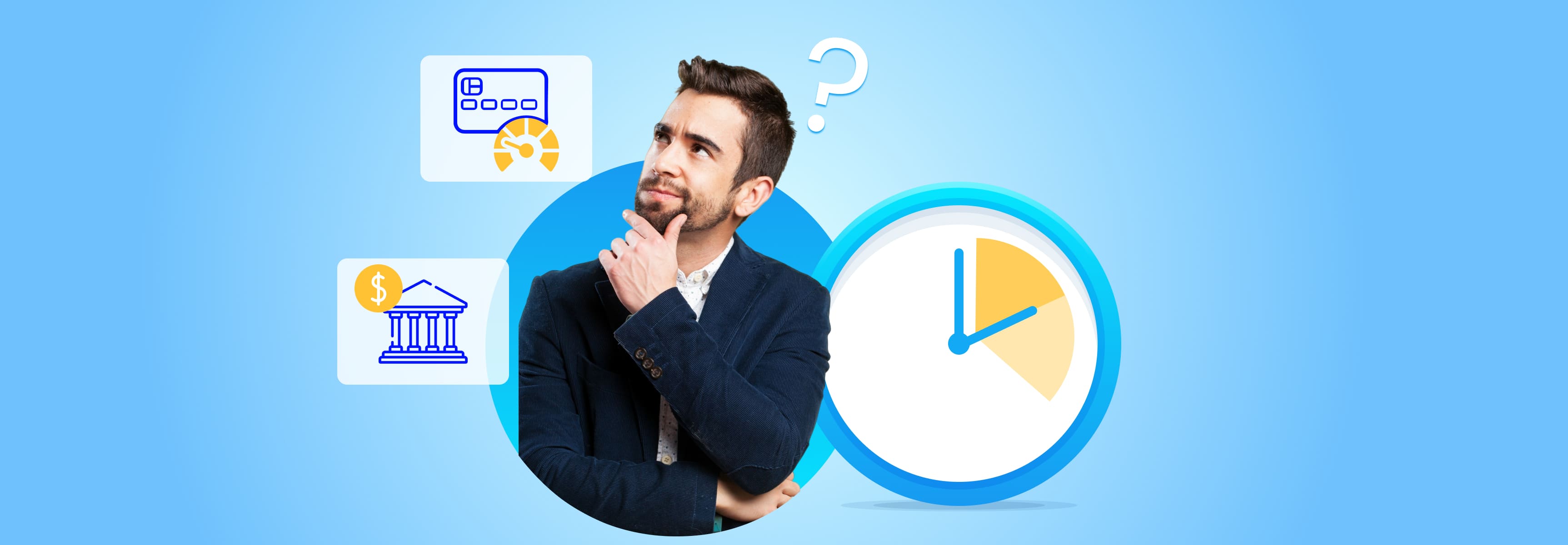
Repaying a personal loan early sounds like a dream come true for many borrowers. The idea of being debt-free sooner than expected can be incredibly appealing. But is it really a good option to repay your personal loan early?
At first glance, it might seem like a win-win situation for both you (the borrower) and your lender. After all, who wouldn’t want their money back sooner? However, early repayment is often a loss for your lender, and it may not be an entirely advantageous move for you, either.
Personal loan prepayment comes with its own pros and cons. Read on to understand these factors and weigh your options carefully to make a financially sound decision.
Paying off your personal loan early, also known as personal loan prepayment, allows you to settle your loan balance before the agreed term ends. You can do this through either a full or partial prepayment, which can help you reduce your debt burden sooner than expected.
Many borrowers find prepayment appealing as it can reduce financial obligations quickly and save on interest costs. However, it’s important to note the potential complexities. Lenders often impose prepayment penalties to make up for the loss of interest income they would have earned over the loan's original term.
These penalties might offset the benefits of early repayment. So, it’s crucial to understand your loan's specific terms and conditions and consider the financial implications of prepayment before making any decisions.
Whenever you consider paying off your personal loan early, thoroughly understand the ins and outs of the prepayment procedure. Personal loan prepayments usually have two options you can choose from:
Full prepayment or foreclosure involves paying off the outstanding loan amount in one go. Doing so can eliminate your debt and free yourself from monthly payments. However, it can also come with penalties.
The primary advantage of full prepayment is the potential savings on interest. No more debt means no more interest accruing, which can lead to significant savings. Conversely, some lenders impose a small fee as foreclosure charges on personal loans to compensate for the lost interest.
Before opting for full prepayment, calculate whether the savings on interest outweigh the prepayment penalty. Use online personal loan prepayment calculators or discuss it with your lender to fully understand the financial impact.
Partial prepayment involves paying off a portion of the outstanding loan before the term ends. This option can benefit borrowers with extra cash who want to reduce their future EMIs.
The primary advantage of partial prepayment is that it lowers your outstanding balance, which results in lower interest payments. It also reduces the loan tenure, allowing you to become debt-free faster. However, similar to full prepayment, some lenders may charge a penalty for partial prepayment.
Additionally, some lenders may limit the number of times and amounts you can make partial prepayments. So, it's crucial to check the terms of your agreement before making any critical decision.
Prepayment of a personal loan has its own advantages, such as:
One of the most significant advantages of early repayment is the potential savings on interest. Paying off your loan before the tenure ends reduces the period when interest usually accumulates, potentially saving you substantial money.
Another benefit is the potential improvement in your credit score. Repaying your loan earlier than decided helps to improve your credit score as it portrays responsible loan repayment behaviour. Doing so can maintain a good credit report, making you a more creditworthy borrower for lenders, potentially landing better interest rates and favourable loan terms.
Early repayment of a personal loan can allow you to redirect your funds toward other financial goals, such as saving for retirement, a house, or your child's education. With one less EMI to worry about, you can allocate your resources more strategically.
Despite the advantages, early repayment has its downsides, such as:
When considering prepaying your personal loan, the prepayment penalty is one thing to watch out for. Depending on your loan terms, this prepayment penalty fee could offset the savings you'd gain from paying less interest. So, always factor in the prepayment charges when calculating the total cost of paying off your loan early.
Another downside to consider is the potential loss of liquidity. Using a lump sum to pay off your loan ahead of schedule might deplete your savings, leaving you unprepared for unexpected expenses. Make sure you have a considerable amount of emergency funds in place before you decide to opt for early repayment.
Your single decision can affect your overall financial health. So, if you're considering paying off your personal loan early, carefully consider the pros and cons and ensure you understand all the terms and conditions before you agree to anything.
Different lenders have different clauses regarding loan prepayment charges and other related factors, making it crucial to have an open conversation with your lender and clarify each term before deciding.
With that in mind, platforms like Quid offer a valuable service for personal loan borrowers looking to connect with reputable financial institutions. With its RBI-approved lending partners, Quid ensures you receive the best and most personalised loan offer with complete transparency.
No, not all lenders include prepayment penalties in their loan terms. It's always best to read your loan agreement carefully or consult your lender directly for clarification.
If your loan has a low interest rate, consider investing your money elsewhere for potentially higher returns rather than repaying the loan early.
Ensure you have enough emergency funds before using savings for early repayment. Maintaining liquidity for unexpected expenses is crucial.
Yes, reducing your debt-to-income ratio can positively impact your credit score, making you a more eligible candidate for future lenders.
The penalty can be a fixed fee, a percentage of the outstanding loan amount, or the equivalent of a certain number of months' interest payments. Ensure you check your loan agreement to know the exact charges.
Get credit at first sight and be closer to your goals.
Download Now